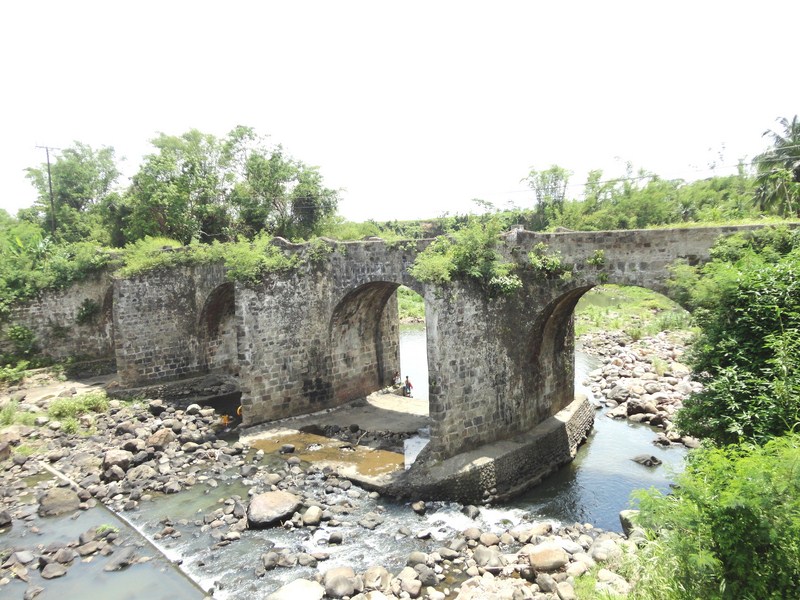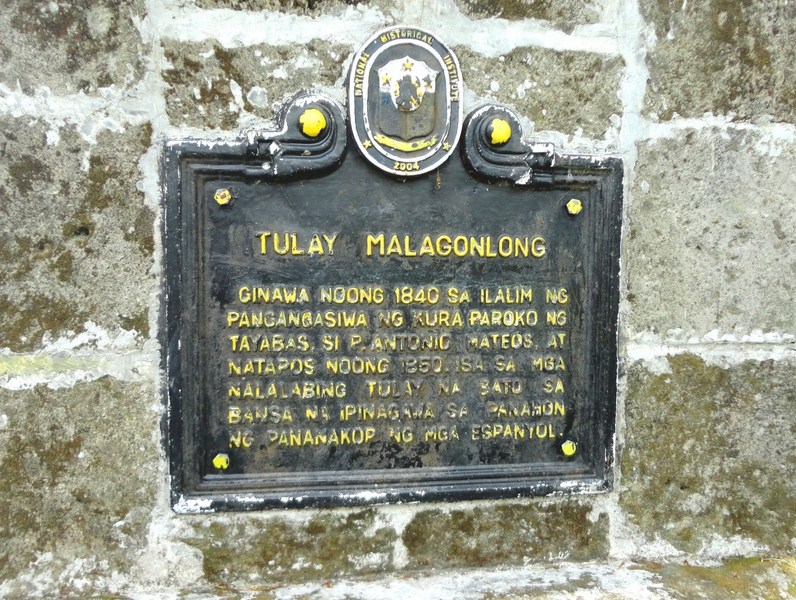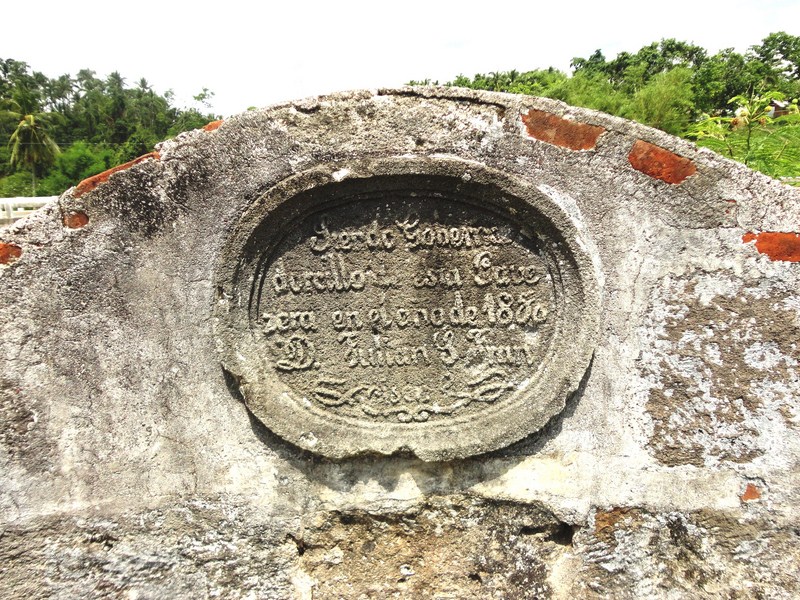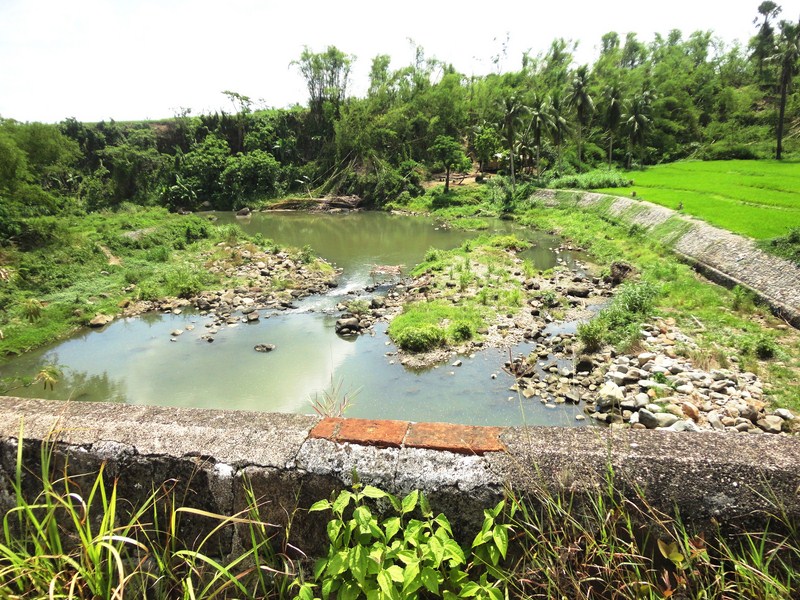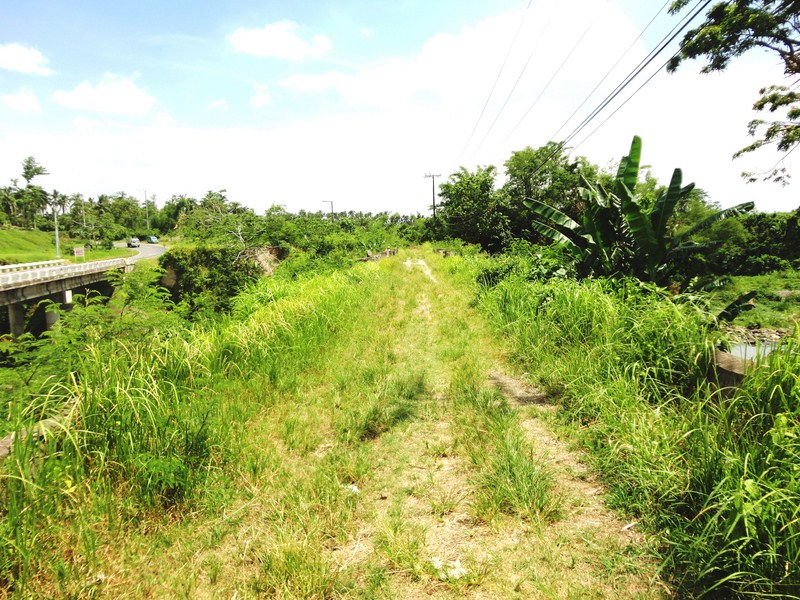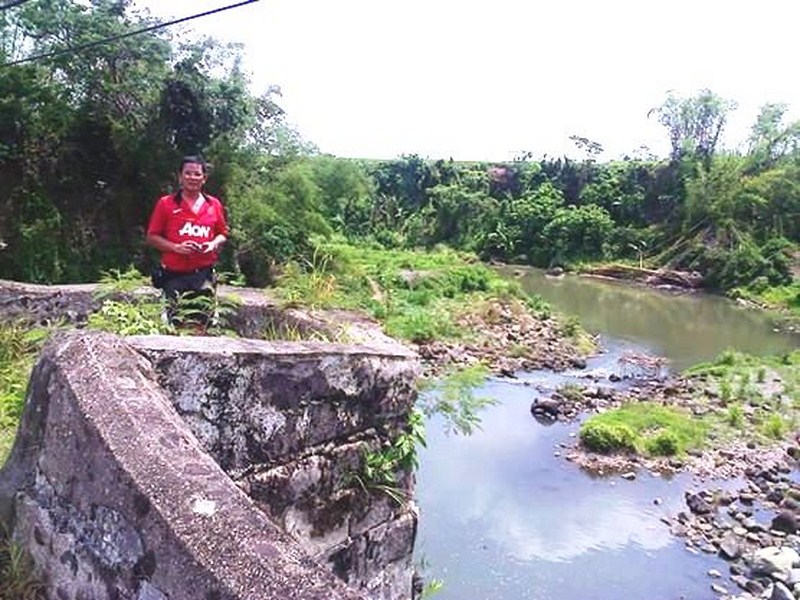Leaving the Tayabas City proper, Jandy, Maricar, Violet, Lanny and I continued on our way to Lucban. About 2.4 kms. outside the city, we made a stopover at the now unused, Spanish-era Malagonlong Bridge across the Dumaca-a River. This wasn’t the first time I’ve seen this bridge, having seen it on our way to Mauban to attend the Maubanog Festival 3 years ago.
However, this would the first time I would actually explore it, crossing the bridge’s 445 ft. (136 m.) length to the other end. The first time, I just took pictures of it from the modern, girder-type concrete bridge parallel to it. On August 12, 2011, it was declared as a National Cultural Treasure under the Historic Bridges of Tayabas. On its eastern side is the plaque installed by the National Historical Institute.
The oldest in the province, the charming, ivy-covered Malagonlong Bridge (Puente del Malagonlong) is one of the few remaining and the longest Spanish colonial, arch-type bridge in the country. One of 11 Spanish-era bridges within Tayabas City, it connects Brgy. Mateuna with Brgy. Lakawon.
Built with about 100,000 adobe blocks, limestone and molasses, it was started, during the term of gobernadorcillo Don Joaquin Ortega’s term, by Spanish Franciscan parish priest Fr. Antonio Mateus in 1840 and completed 10 years later during the term of gobernadorcillo Don Julian S. Francisco.
The bridge has five spans, the first arch with a height and width of 36 ft (11 m); the second at 33 ft (10 m); the fourth at 30 ft (9.1 m) and the fifth at 18 ft (5.5 m). It has a width of about 20 ft (6 m.) and six small balconies.
How to Get There: Tayabas City is located 147.28 kms. from Manila and 10.62 kms. from Lucena City. Malagonlong Bridge is a 15-20 min. tricycle ride from the city center.

